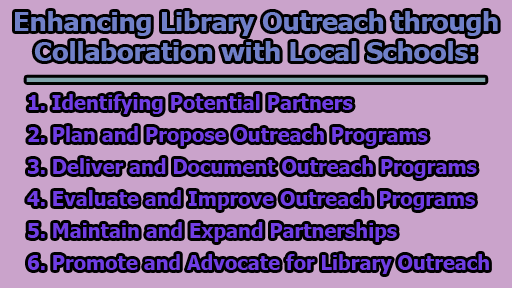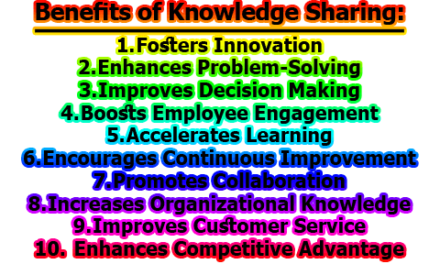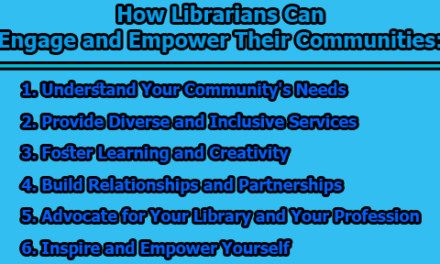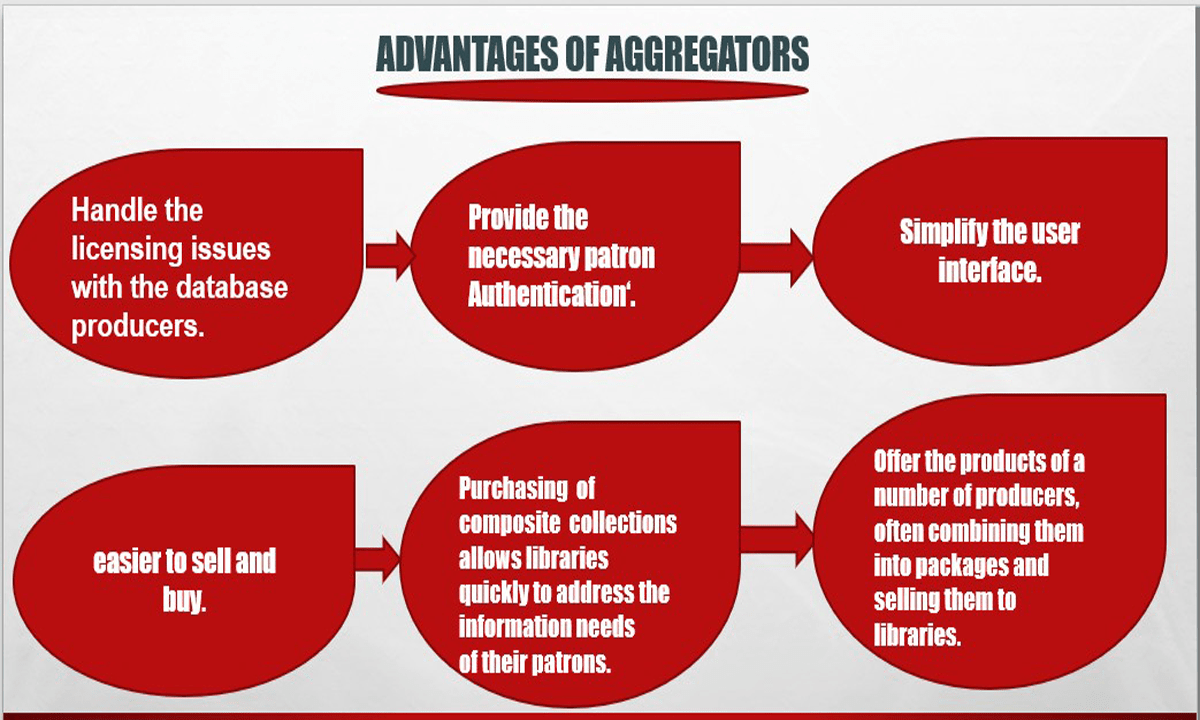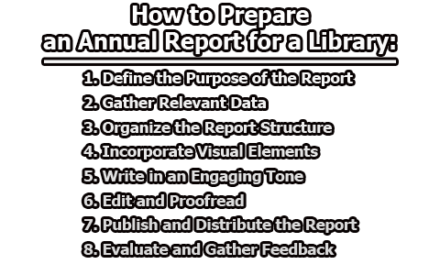Enhancing Library Outreach through Collaboration with Local Schools:
Library outreach programs play a vital role in fostering a love for reading and learning within a community. They offer an opportunity for libraries to engage with local schools and students, providing educational and recreational resources that complement traditional classroom learning. However, establishing successful collaborations with local schools requires careful planning, coordination, and dedication. In this article, we will explore enhancing library outreach through collaboration with local schools.
1. Identifying Potential Partners: The first and crucial step in collaborating with local schools is identifying potential partners who share common goals and values. To initiate this process, research local schools to gain insights into their demographics, curriculum, and specific needs. Reach out to key individuals within these institutions, such as teachers, librarians, counselors, principals, and parent-teacher associations. Building a network of contacts is essential in understanding the challenges, resource requirements, and opportunities for collaboration that schools might present.
2. Plan and Propose Outreach Programs: Once you’ve established a rapport with local schools and their stakeholders, the next step is to plan and propose outreach programs that align with their interests and educational objectives. This step requires creativity and an understanding of the needs of the students and teachers. Tailor your programs to the age, grade level, and specific requirements of the students. You can offer a range of programs such as book clubs, reading contests, author visits, workshops, and field trips. Furthermore, consider presenting your library’s collections, resources, and services directly in their classrooms or school assemblies.
3. Deliver and Document Outreach Programs: The execution of outreach programs should be conducted with professionalism and enthusiasm. Prepare materials like lesson plans, handouts, and visual aids that support your programs. Collaborate with school staff, volunteers, or other partners to ensure a smooth and safe delivery of your programs. Interact with students and teachers during the programs, solicit feedback, and collect data to measure the effectiveness of your efforts. After the programs, follow up with thank-you notes, evaluation forms, or reports, which can provide valuable insights for improvement.
4. Evaluate and Improve Outreach Programs: The evaluation process is critical for the ongoing success of your library outreach programs. Quantitative and qualitative methods, including surveys, interviews, tests, and observations, can be employed to assess the impact and effectiveness of your initiatives. Use this data to identify the strengths and weaknesses of your programs and areas for improvement or innovation. Make adjustments and enhancements accordingly or create new programs that better cater to the needs of your local schools.
5. Maintain and Expand Partnerships: To ensure the longevity of your collaboration with local schools, it is important to maintain and expand your partnerships. Stay in touch with your contacts, acknowledge their contributions, and celebrate their achievements. Look for new opportunities to collaborate, such as joint projects, grants, or events. Additionally, connect with other libraries, organizations, or agencies that work with schools to learn from their best practices and experiences.
6. Promote and Advocate for Library Outreach: Promotion and advocacy play a significant role in expanding the impact of your library outreach efforts. Share your success stories and the challenges you’ve overcome with library colleagues, patrons, and stakeholders. Utilize various channels, including newsletters, blogs, social media, and podcasts, to showcase your outreach programs and their positive effects on the community. Employ advocacy tools like testimonials, statistics, or infographics to demonstrate the value and relevance of your library outreach, raising awareness and inspiring others to collaborate with local schools.
In conclusion, collaborating with local schools to promote library outreach is a mutually beneficial endeavor that can significantly impact the education and development of students. By identifying potential partners, planning tailored programs, delivering them with professionalism, evaluating and improving, maintaining and expanding partnerships, and promoting and advocating for library outreach, libraries can create lasting connections with local schools and foster a culture of learning, reading, and community engagement. These efforts are not only invaluable to the growth of libraries but also to the enrichment of the entire community.

Library Lecturer at Nurul Amin Degree College

